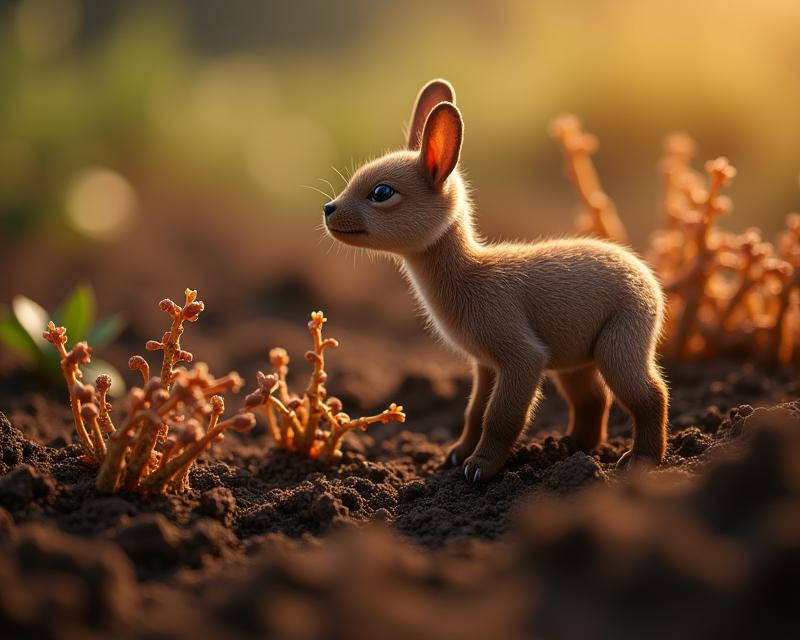Microbes: The Hidden Power of Organic Fertilizers
Publish in Sustainable Farming el 04/07/2025 15:48
Boosting Microbial Life with Organic Fertilizers: What Happens Below the Surface
As farmers, gardeners, and ranchers, we often focus on what's above ground – the leaves, fruits, and vegetables. But a whole world of activity is happening *beneath* our feet, a world teeming with life that’s absolutely crucial for healthy plants and thriving ecosystems. We're talking about soil microbes – bacteria, fungi, protozoa, and other tiny organisms – and how organic fertilizers are the key to unlocking their incredible potential.

So, what exactly happens when you add compost, manure, or other organic matter to your soil? It's not just about providing plants with nutrients directly. Organic materials are a feast for these microbes! They break down the complex organic compounds – like sugars, proteins, and starches – into simpler forms that the plants can then absorb. This process releases nutrients slowly and steadily, providing a sustained food source for your crops. Think of it as a slow-release fertilizer that also builds a thriving community of beneficial organisms.
These microbes are the unsung heroes of soil health. They play a vital role in nutrient cycling, making essential elements like nitrogen, phosphorus, and potassium available to plants. Some microbes form symbiotic relationships with plant roots, enhancing nutrient uptake and even protecting plants from diseases. Others help improve soil structure, creating better aeration and water retention. A healthy microbial community also suppresses harmful pathogens, reducing the need for synthetic pesticides. Essentially, a vibrant soil food web leads to stronger, more resilient plants that are better equipped to withstand stress, pests, and diseases.
Choosing organic fertilizers is a direct investment in this underground ecosystem. By providing a natural food source, you encourage the growth and diversity of beneficial microbes. This, in turn, creates a positive feedback loop – healthier microbes lead to healthier plants, which further enrich the soil with organic matter, creating a cycle of sustainability. Consider incorporating cover crops, composting, and avoiding excessive tilling to further support a thriving microbial community. Understanding and nurturing the life below the surface is one of the most powerful things we can do to ensure long-term soil health and successful harvests. It's about working *with* nature, not against it.





